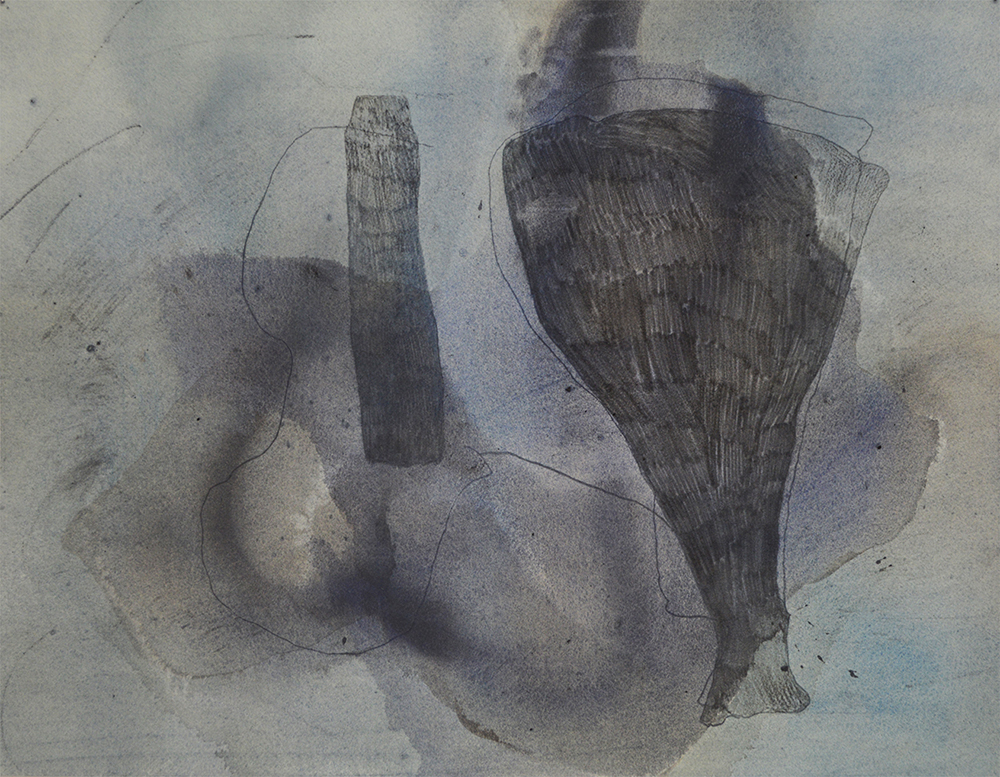
Genevieve Robertson, 'River Drawing 02,' 2015. Courtesy the artist.
Join Walter Phillips Gallery for a half-day series of programming in conjunction with the exhibition, If the river ran upwards. Butterflies, soil, silt, and water will feature talks and exhibition tours led by artists Carolina Caycedo, Genevieve Robertson, T’uy’t’tanat-Cease Wyss and Anne Riley, as well as a presentation by Macarena Gómez-Barris, Chairperson of the Department of Social Science and Cultural Studies and Director of the Global South Center at Pratt Institute.
Schedule of Events
1pm: Decolonial Futures: Beyond the Extractive View
Talk by Macarena Gómez-Barris
Location: Rice Studio, Jeanne and Peter Lougheed Building
2pm: Thinking through the river
Exhibition Tour with Carolina Caycedo, Genevieve Robertson and Jacqueline Bell
Location: Walter Phillips Gallery
2:45 - 3:30: a chrysalis of being
Talk by T’uy’t’tanat-Cease Wyss and Anne Riley
Location: Mike MacDonald’s Butterfly Garden (1999); adjacent to Glyde Hall
Decolonial Futures: Beyond the Extractive View
Talk by Macarena Gómez-Barris
As scholars, activists, and artists, how can we address spaces of ruinous capitalism to raise the possibility of decolonial futures? One way is to name and move beyond the extractive view, or forms of visuality, perceptions, and knowledges of production that exceed mere capitalist valuation to offer other ways to organize social life.
In the book The Extractive Zone: Social Ecologies and Decolonial Perspectives (Duke University Press, 2017), Macarena Gómez-Barris shows how the last forty years represent a period of planetary extractive intensification with new technologies, such as digital mapping, facilitating corporate, militarized, and state and legal control over the Earth’s eco-pools. Though the anglocentric and universalizing logic of the anthropocene presumes full colonization and extinction in such spaces, we might instead foreground how the histories of extractive geographies have always been organized through modes of being, doing, thinking, and living that refuse the gender/sex/class and racial order of colonial capitalism.
In this talk, Gómez-Barris will discuss an-aesthetics in relation to extractive capitalism that finds routes away from the normative assumptions that Indigenous territories are there for the taking, focusing on the work of artists, activists and scholars in the Americas that perceive practices otherwise in relation to land and sea. Challenging and subverting the extractive logics that circulate through a sensorium that has been capitalized, as much as it is continually decolonized, recentres critical hope for local and planetary futures.
Thinking through the river
Exhibition Tour with Carolina Caycedo, Genevieve Robertson and Jacqueline Bell
Join artists Carolina Caycedo and Genevieve Robertson and exhibition curator Jacqueline Bell for an introduction to the Walter Phillips Gallery exhibition, If the river ran upwards. Currently based in Nelson, Genevieve Robertson will discuss her body of work, River Drawing (2015), which reflects on Vancouver’s heavily industrialized Fraser River through an expanded conception of drawing, as well as on notions of submersion and embodiment. Robertson will also discuss her involvement with River Relations, self-described as “an interdisciplinary artistic research project undertaken as a response to the damming and development of the Columbia River in British Columbia, Washington and Oregon, and the upcoming renegotiation of the Columbia River Treaty.”[1] Los Angeles-based artist Carolina Caycedo will speak to her ongoing body of work, Be Dammed, which focuses on the impact of large-scale dams in riverine communities across the Americas. Following the tour, Caycedo will discuss a selection of artist books from the collection of Banff Centre’s Paul D. Fleck Library and Archives in relation to her work, Serpent River Book (2017); a published collection of photographs, drawings, maps, photo collages, and text drawn from the past five years of the artist’s research. The selected artist books will be on display in the lobby of Walter Phillips Gallery for the length of the afternoon’s programming.
a chrysalis of being
Talk by T'uy't'tanat-Cease Wyss and Anne Riley
What happens inside a chrysalis or cocoon? One day, the caterpillar stops eating, hangs upside down from a twig or leaf and spins itself a silky cocoon or molts into a shiny chrysalis. Within its protective casing, the caterpillar radically transforms its body, eventually emerging as a butterfly or moth .[2]
In 1999, Mike MacDonald planted Butterfly Garden outside Walter Philips Gallery to nurture, nourish and protect the native species of the area. This permanent public artwork by the Mi’kmaq artist was taken as a point of departure by artists T'uy't'tanat-Cease Wyss and Anne Riley when invited to contribute to the current Walter Phillips Gallery exhibition, If the river ran upwards. Wyss and Riley’s new sound work on cassette tape, Soundtrack for the Radical Love of Butterflies (2018), consists of recordings aimed to confound, challenge and break colonial time; including interviews engaging with social justice groups, soundscapes of pollinators at the Harmony Garden at Humul chs’n, North Vancouver, and teachings from elders. Join the artists on-site in the Butterfly Garden where their talk will reflect on the history of the work, offering a place and time that honours the more-than-human species of this space. The work, Soundtrack for the Radical Love of Butterflies will also be launched at the event, and freely distributed on cassette tape to those in attendance.
[W]ith these new gardens, I am hopefully providing a space where people can focus on and think about questions…so as to come up with some better alternatives. Our cities are becoming pretty ugly in terms of what happens there. - Mike MacDonald[3]
[1] “River Relations: A Beholder’s Share of the Columbia River,” http://www.riverrelations.ca/ .
[2] “How Does a Caterpillar Turn into a Butterfly?” Ferris Jabr, August 10, 2012, https://www.scientificamerican.com/article/caterpillar-butterfly-metamorphosis-explainer/ .
[3] Mike MacDonald, “Mike MacDonald: Healing Garden,” interviewed by John Grande,” Land Views, https://landviews.org/articles/mikemacdonald-jg.html .